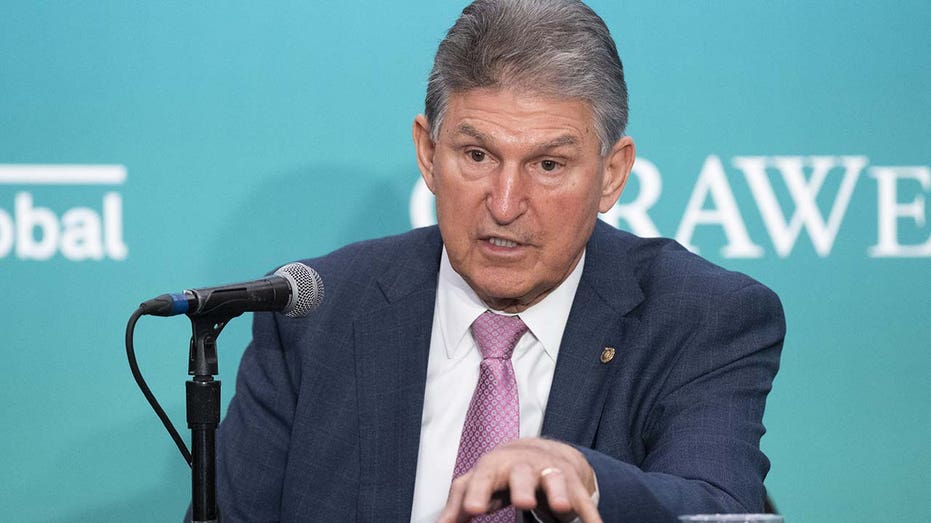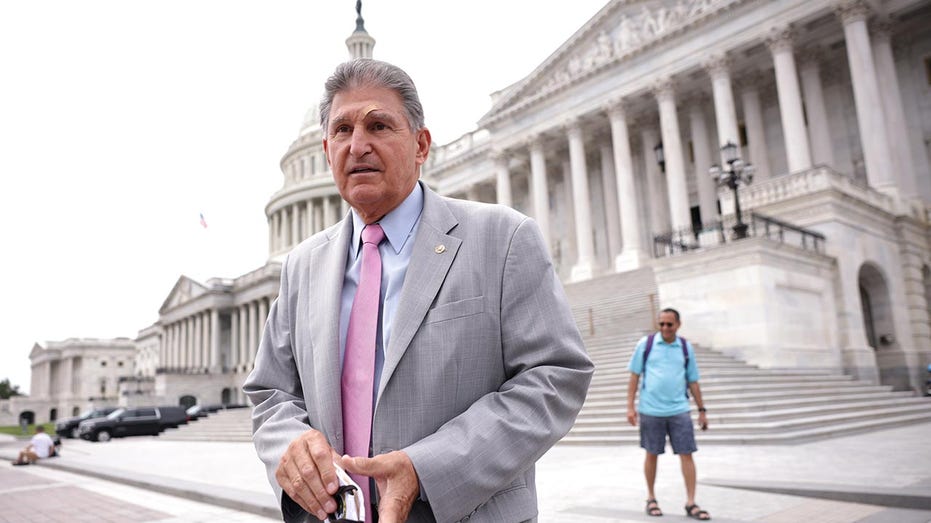Manchin-Schumer spending bill estimated to hurt coal workers the most
Manchin 'betraying' West Virginians with tax hike on coal industry, Republican says
A deal reached last week by Senate Majority Leader Chuck Schumer, D-N.Y., and Sen. Joe Manchin, D-W.Va., after months of party in-fighting will reportedly hurt coal workers the most.
The Inflation Reduction Act, a slimmed down version of President Biden’s Build Back Better (BBB) Act, will cost an estimated $433 billion, most of which will be invested in climate provisions, while increasing tax revenue by $739 billion. The bill will require large corporations to pay at least 15% in taxes, which is projected to raise tax revenue by $313 billion, as well as boost IRS enforcement, estimated to raise tax revenue by another $124 billion, and it will close the carried interest loophole, estimated to raise $14 billion.
Manchin’s agreement to the deal ended a monthslong stalemate on Biden’s multi-trillion dollar BBB Act, which Manchin repeatedly blasted as exorbitant and inflationary.
"If I can’t go back home and explain it, I can’t vote for it," Manchin said in December.

Sen. Joe Manchin, chairman of the Senate Energy and Natural Resources Committee, speaks during a news conference in Houston, Texas, on March 11, 2022. (F. Carter Smith/Bloomberg via / Getty Images)
MANCHIN-SCHUMER SPENDING BILL WILL HAVE ‘INDISTINGUISHABLE’ EFFECT ON INFLATION: PENN WHARTON
On Sunday, Manchin insisted the new bill "does not raise taxes" – a claim that Republicans strongly dispute.
And Manchin is going to have to explain to the people of West Virginia, the second-largest coal producer in the nation, why he ended up supporting a bill that will hit them the hardest, according to a study by the Tax Foundation.
The 15% corporate alternative minimum tax, which is applied to the financial statement income that companies report to their investors, will impose a net tax hike of 7.2% on the coal industry’s pretax book income, which is higher than any other industry, the Tax Foundation report said. The second-hardest hit by the tax, according to the study, is in automobile and truck manufacturing, which faces a 5.1 percent tax hike.

Sen. Joe Manchin leaves the U.S. Capitol following a vote on Aug. 3, 2021. (Kevin Dietsch / Getty Images)
"These industries are especially heavily impacted because they are at the intersection of the different book-tax gaps targeted by the book minimum tax: permanent discrepancies between the two measures from firms paying low taxes (the intended target); temporary timing differences between financial and taxable income; deliberate tax incentives created by Congress (e.g., bonus depreciation); and special items that show up in one income definition but not the other, such as amortizing investment in spectrum…" the study said.
WHAT TAX HIKES ARE IN THE MANCHIN-SCHUMER RECONCILIATION BILL?
Moreover, Section 13901 of the new bill strikes a subsection of the U.S. tax code that reduces the tax on coal production, meaning the rate of tax on coal from underground mines will increase from $0.50 to $1.10, and the rate of tax on coal from surface mines will increase from $0.25 to $0.55.

Sen. Joe Manchin speaks to reporters before a caucus meeting with fellow Senate Democrats on Capitol Hill, Jan. 18, 2022. (Drew Angerer / Getty Images)
Rep. Alex Mooney, R-W.Va., slammed Manchin for supporting the bill in an op-ed Sunday, saying he is "betraying" West Virginians by hurting coal workers with more "reckless spending."
"Sen. Manchin is raising taxes on West Virginia’s coal mining industry and providing subsides to liberals in deep blue states to drive electric vehicles," Mooney wrote. "These dramatic tax increases will threaten the entire coal industry and the thousands of West Virginia jobs and communities it supports."
The Wall Street Journal editorial board also tore into the bill on Sunday, saying it should be renamed the "Business Investment Reduction and Distortion Act."
"Start with the 15% minimum tax on corporate book income over $1 billion, which Democrats claim will raise $313 billion through 2031," the board wrote. "This new alternative minimum tax will slam businesses whose taxable income is lower than the profits on their financial statements owing to the likes of investment expensing, tax credits and business deductions."
CLICK HERE TO READ MORE ON FOX BUSINESS
"Many companies pay less than the 21% corporate tax rate because they can expense investments under the tax code up-front," the board continued. "Hence, the new tax will increase the cost of business investment and—irony alert—the Tax Foundation forecasts the coal industry would be hardest hit. Yet green-energy tax credits would be exempt from the new tax."
Manchin’s office did not immediately respond to Fox News Digital’s request for comment.




















